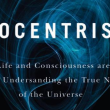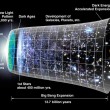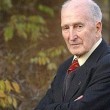Whatever Happened to the Soul?
by Dr. Benjamin Wiker
Filed under Anthropology, Christianity and Science

Bad news, friends. You have no soul, according to a few professors at Fuller Theological Seminary. I say this after happening upon a copy of Whatever Happened to the Soul? Scientific and Theological Portraits of Human Nature, edited by Warren Brown, Nancey Murphy, and H. Newton Malony, all full-fledged Fullerian professors. They say the soul is now scientifically, and hence theologically passé. What happened to the poor soul, that it should suddenly be shuffled away? According to Murphy, the theologian-philosopher... Read More
Science Reveals Who We Are is Determined by How We Are
by Dr. Benjamin Wiker
Filed under Anthropology, Science

According to scientific orthodoxy, all living things were entirely determined by their genetic code. Hence the neo-Darwinian motto: DNA is destiny. But the latest news from researchers is that DNA is not destiny. As an article in Discover Magazine makes clear, the science of epigenetics has some humbling news for predestination scientists of genetics. Neither human beings nor any other animal is reducible to the nucleotide sequence in DNA. Instead, who we are is also determined by how we are. The... Read More
Richard Dawkins and the God of the Old Testament
by Dr. Benjamin Wiker
Filed under Christianity and Violence, New Atheists, The Bible

"The God of the Old Testament is arguably the most unpleasant character in all fiction: jealous and proud of it; a petty, unjust, unforgiving control-freak; a vindictive, bloodthirsty ethnic cleanser; a misogynistic, homophobic, racist, infanticidal, genocidal, filicidal, pestilential, megalomaniacal, sadomasochistic, capriciously malevolent bully." So says Richard Dawkins. Obviously, he doesn't want readers to think he's on the fence about God as presented in the Old Testament—or at least, how... Read More
The Myth of Religious Violence
by Dr. Benjamin Wiker
Filed under Christianity and Violence

One of the enduring myths of the secular state is that religion is so dangerous, so volatile, so likely to burst into conflagrations of violence, that the only protection we have from societal destruction is the erection of a wall that separates religion from the state. We've all heard the story, and in fact, having also heard endless tales of horror about the great religious wars—especially the French Wars of Religion and the Thirty Years War—we might be strongly inclined to believe the myth. Even... Read More
Is Reality Just What We Think It Is?
by Dr. Benjamin Wiker
Filed under Anthropology

The human mind, by its nature, strives to know everything. But just because we have the desire to know everything, our reach often exceeds a sure grasp of reality, and we fall into fantasy. So it is with Robert Lanza's Biocentrism: How Life and Consciousness are the Keys to Understanding the True Nature of the Universe which offers a new and elaborate form of solipsism. The universe and everything in it, Lanza asserts confidently, exists because we perceive it. In his words, "the observer creates... Read More
The Deflation of Inflationary Theory
by Dr. Benjamin Wiker
Filed under Cosmology

If you study the history of science long enough, you realize that you've got to ask two questions about any scientific theory, especially the biggest and most grand of them. What is it? Why was it put forth? The two almost invariably go together. We cannot truly grasp what the theory is, until we understand the motives of those who developed it. Now here the obvious objection would be this. The what of a theory is really the only question, because the why is so obvious as not to need asking.... Read More
How the World’s Most Notorious Atheist Changed His Mind
by Dr. Benjamin Wiker
Filed under Conversion

EDITOR'S NOTE: For the last half of the twentieth century, Antony Flew (1923-2010) was the world's most famous atheist. Long before Richard Dawkins, Christopher Hitchens, and Sam Harris began taking swipes at religion, Flew was the preeminent spokesman for unbelief. However in 2004, he shocked the world by announcing he had come to believe in God. While never embracing Christianity—Flew only believed in the deistic, Aristotelian conception of God—he became one of the most high-profile... Read More
Big Bang or Big Bloom?
by Dr. Benjamin Wiker
Filed under Cosmology

In science today, we are under the tyranny of an image, the image of an explosion—the Big Bang. Ironically, this term was not derived from evidence but from contempt. Sir Fred Hoyle (1915-2001), the celebrated astronomer, was so incensed at the notion that the universe might have a beginning that he began to refer to proponents of this view as believing that the universe started in some kind of a “big bang.” He was quite surprised when the fires of his sarcasm, rather than withering his opponents,... Read More







